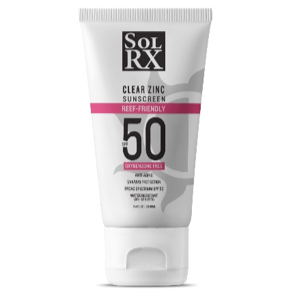Coral reefs are dying at an alarming rate, but who’s trying to stop this? Lucky for us, Watermen – Dr. Jacob Eurich, is doing his best to help. He’s part of a great community researching the interactions between coral reefs and human communities. Along with his studies he also gets to travel to some pretty cool remote places and spend his days in the ocean doing research – not a bad gig, huh? People like Jacob are needed this day and age to help bring awareness to our dying reefs. We all need to step up and take part in saving our environment, and here at Watermen we plan on continuing to do our best to reduce our footprint. We’ve led this charge with one of our flagship products. Our men’s amphibious compression shorts are 100% sustainably-sourced from recycled fishing nets!

So what is it you actually do?
I am a marine conservationist and faculty researcher at UCSB in the Marine Science Institute, same thing as a professor but without the teaching. My job as a scientist is to discover new solutions for real world problems and then communicate the results back to people who need the information. Right now, I am working on many projects, advising students, and collaborating with governments and non-profit NGO organizations – all on the health of our coral reefs and why healthy coral reefs are so important. My research aims to tackle ecological and social-ecological coral reef issues under the overarching themes of climate change, human use, fisheries, and the resilience of our reefs.

So, what does your day entail?
Most of a marine scientists’ time is spent in the office writing, analyzing data, working on reports, and traveling to work functions like workshops, conferences and meetings. I would say 70% of my days are spent on a computer doing the actual research. The other 30% of my time is the exciting fieldwork where I get to go out to remote coral reefs and small island nations. Those days are spent diving, fishing and working with local communities – typically 10 hours out on the boat each day for a month. I do a few trips a year and this is where Waterman really supports me with durable, performance swimwear and gear, as well as sun protection products.
How does your research help the reefs?
One of my main projects right now is on the interactions between coral reefs and human communities. With colleagues from around the world, we are aiming to understand how much coral reef-derived foods matter to human health. Celebrating the diversity and beauty of species in endangered ocean ecosystems, like coral reefs, resonates with many world leaders. Others, however, will only act when it can be proven that the oceans demonstrably benefit the people and communities they represent. One of the most compelling of such human benefits is the linkage between human health and environmental health. Right now, we do not have a good understanding of how coral reefs shape human health and so many world leaders are not focused on reef conservation. We are looking to identify effective reef management practices that can lead to levels and types of seafood consumption that promote human nutrition. Healthy reefs = healthy people and we need to improve reef conservation to make sure this link remains for future generations.
What can the average person do to help?
I think there are three major things that people can do to help save our reefs and promote ocean health. The first is reducing your carbon footprint. We can all reduce the effects of climate change on the ocean by using public transport, biking or walking, as well as being conscious of your energy use at home and work. Switching to fluorescent light bulbs, taking the stairs, avoiding AC/thermostat, and educating family and friends are a start! A second important thing is being sustainable with your seafood choices and product use. Limit your plastic impact, store food in non-disposable containers, reusable bags and bottles, and support brands that are environmentally conscious like Waterman! Lastly, I would say influence change in your community with your vote and public voice.
What is the favorite place you’ve traveled to for research?
One of the more remote places that I have conducted research in is an island called Butaritari in the South Pacific. Butaritari is a coral reef atoll that belongs to the country of Kiribati. It took multiple flights, local boat transportation, and motorbikes to get to the villages our project works in. I went out there to survey coral reef health and to work directly with the island’s elders and fisheries workers. We lived in a stilt house in the local village, ate local food, and learned about life out in a remote Pacific island. The reefs were incredible and largely pristine!

We recommend you use reef friendly sunscreen! Check out our line of SolRX!
Watermen has UPF 50+ sun/surf shirts that are clutch out on the boat all day, in and out of the water. Their performance rashguards are UPF 50+ as well and work perfectly for colder weather activities.



